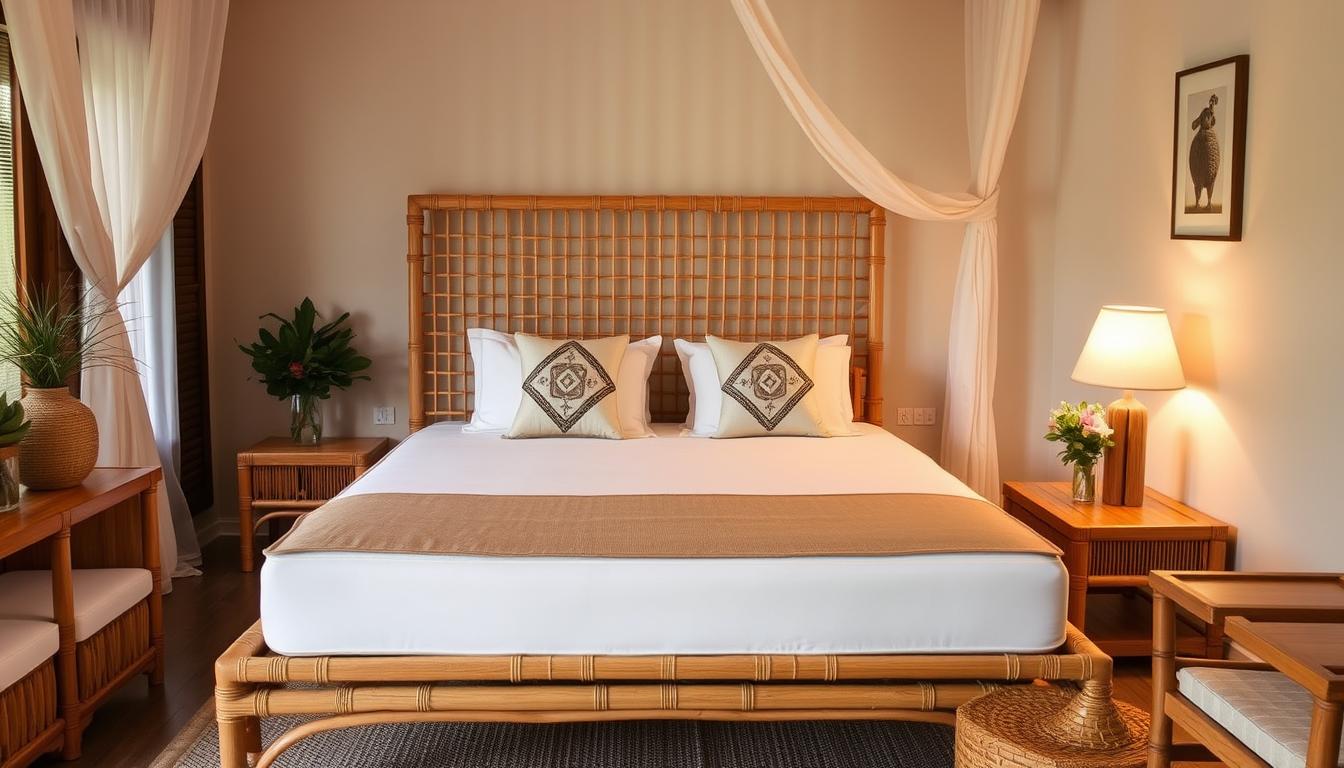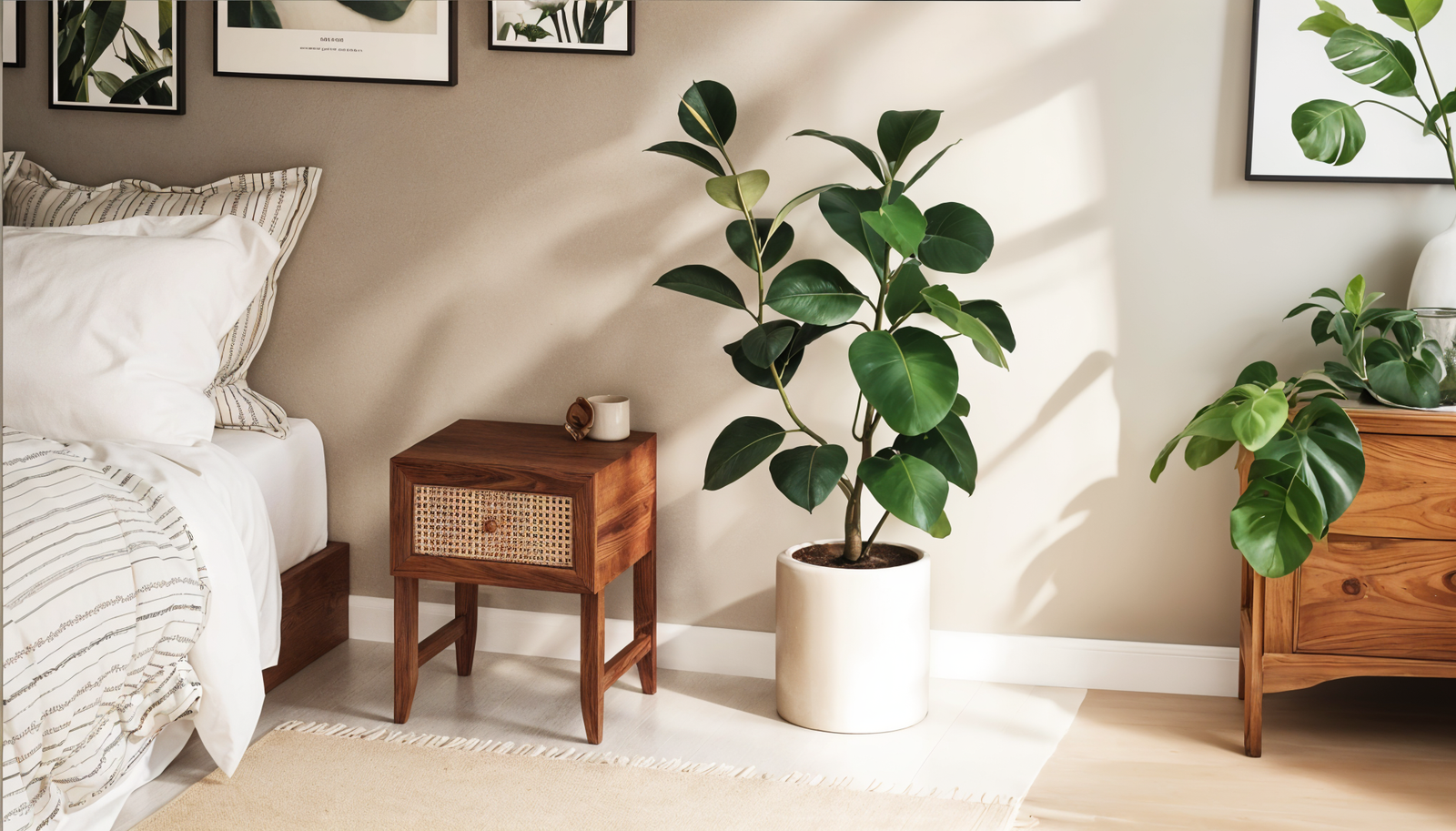🤍 Unmatched Quality, Authentic Craftsmanship
🤍 Unmatched Quality, Authentic Craftsmanship
🤍 Unmatched Quality, Authentic Craftsmanship
In this article, let's explore Japanese futon benefits. We look into comfort, posture, and how it saves space. A Japanese futon, or Shikibuton, is made for floor use. It suits some people, but it isn't for all. It brings benefits like portability, natural materials, better sleep hygiene, deeper sleep, pain relief, and a cooler night compared to a Western mattress.

The shikibuton is a traditional Japanese futon mattress that rests on the floor. It can be rolled up and stored, making it perfect for small spaces. These mattresses are about 3 to 4.5 inches thick, offering support close to the ground.
These futons are made with natural cotton and are free from harmful chemicals. They have been a key part of Japanese culture for centuries. People often use them in traditional houses and ryokan (inn) accommodations.
| Feature | Details |
|---|---|
| Thickness | 2 to 3 inches, providing a balance between comfort and storage |
| Size | Single: 3'3" x 6'11" (100cm x 210cm); Double: 4'7" x 6'11" (140cm x 210cm) |
| Materials | Traditionally made with natural cotton, free from synthetics and chemicals |
| Lifespan | Around 15 years, longer than a typical Western mattress |
| Versatility | It can be rolled up and stored when not in use, making it ideal for small spaces |

The traditional Japanese futon, or shikibuton, offers a unique and minimalist sleeping experience. It has been a key part of Japanese culture for centuries. Its portability, natural materials, and design make it a great choice for those wanting a more authentic and space-efficient sleep solution.
For minimalists, studio renters, loft dwellers, digital nomads, and tiny home residents, finding space-saving solutions is key. The Japanese futon, or shikibuton, is a great choice. It's both comfortable and space-efficient.
Shikibutons are eco-friendly because they're made from natural materials like cotton. This makes them perfect for those who care about the planet. They're also good for people with allergies because they don't have synthetic materials that can cause allergic reactions.
Using a shikibuton can help you sleep better. Chiropractor Brett Edmunds says the firm surface improves blood flow, leading to deeper sleep. Setting up and sleeping on one can also help you develop a good sleep routine. This is especially helpful if you have trouble sleeping.
If you have back or muscle pain, a shikibuton could be a big help. It keeps your spine in the right position, reducing pressure on sore spots. This is great for side sleepers who often find traditional mattresses uncomfortable.
The shikibuton is also convenient as portable bedding due to its lightweight and compact foldable design, making it easy to transport.This makes it perfect for anyone living in a small space. Whether you're in a studio, a loft, or a tiny home, you can easily store it away when not in use.
In summary, the Japanese futon has many benefits for your sleep, health, and living space. Its eco-friendly materials and versatile design make it a great choice for anyone looking for a better night's sleep.

| Benefit | Description |
|---|---|
| Space-saving | The shikibuton can be easily folded and stored away during the day, making it ideal for minimalists, studio renters, loft dwellers, and tiny home residents. |
| Eco-friendly | Shikibutons are made of natural, eco-conscious materials like cotton, which can be beneficial for those with allergies. |
| Improved sleep hygiene | The ritual of setting up and sleeping on a shikibuton can help establish a healthy sleep routine, which can be beneficial for those struggling with insomnia. |
| Back and muscle support | The firm yet supportive surface of the shikibuton can help alleviate pressure on sensitive areas, particularly for side sleepers, and promote better spinal alignment. |
A Japanese futon, or shikibuton, might seem like an interesting choice for sleep. But it's not the best fit for everyone. You should think about your body type, what kind of firmness you like, and how you sleep.
If you have a bigger curve in your spine, a shikibuton might not be comfy. Side sleepers might feel pressure on their shoulders and hips. If you have back pain, injuries, or trouble moving around, talk to your doctor before trying a Japanese futon.
Switching to a shikibuton takes some getting used to. It might take up to three nights to adjust to sleeping so close to the ground. A queen-size shikibuton weighs about 40 to 50 pounds, which could be hard for some to move every day.
| Consideration | Potential Impacts |
|---|---|
| Body Type | Larger spinal curves may find shikibuton less comfortable due to firm surface |
| Firmness Preference | Side sleepers may experience pressure on shoulders and hips |
| Sleeping Position | Back pain, injuries, or mobility issues may require consulting a healthcare provider before switching |
| Adjustment Period | It can take up to 3 nights to get used to sleeping close to the floor |
| Weight | Queen-size shikibuton (40–50 lbs) may be difficult to move daily for some individuals |
Choosing between a Japanese futon and a traditional mattress depends on what you need and like. Think about your body, what you prefer in a mattress, and your health. This will help you pick the best sleep option for you.

The Japanese futon, or shikibuton, has many benefits but isn't perfect for everyone. Its firm surface might be hard for those with bigger spinal curves. Side sleepers may struggle to get the right pressure relief on their shoulders and hips.
Getting in and out of bed can be tough due to the futon's low position. It's hard for people with back pain. Also, a queen-size shikibuton weighs 40–50 pounds, which can be heavy for some to move every day.
Adjusting to a futon can take time, with some needing up to 3 nights to get used to it. High-quality shikibutons are also pricier than traditional Western mattresses. This might stop some from trying it out.
| Drawback | Explanation |
|---|---|
| Firmness | The firm surface of the futon can be uncomfortable for those with larger spinal curves, especially side sleepers. |
| Low to the Ground | The low-to-the-ground positioning can make it difficult for individuals with back pain to get in and out of bed. |
| Weight | The weight of a queen-size shikibuton, typically between 40 and 50 pounds, may make it challenging for some to move daily. |
| Adjustment Period | It can take up to 3 nights for some people to get used to the firm, close-to-the-floor sleeping surface. |
| Cost | High-quality shikibutons can be more expensive than a traditional Western mattress. |
Not everyone will find the Japanese futon suitable. It's key to think about your sleep needs and preferences before deciding if a shikibuton is right for you.

Looking after your Japanese shikibuton is key to keeping it in top shape. In Japan, people often hang their shikibutons outside to dry in the sun. This sunning process kills germs and dust mites. It's advised to sun your shikibuton at least twice a year. You might need to do it more if you live in a humid area or sweat a lot at night.
Adding baking soda to your futon and vacuuming it off every month keeps it smelling fresh. This is especially useful in damp places. Always follow the care instructions from the maker, as most shikibutons can't be washed in a machine.
By following these easy care tips, your Japanese futon will stay comfy and last longer. Shikibutons from places like Mojo Boutique will keep you sleeping well for years.
Now that you have read the above article, maybe you still have a couple of questions on this topic, so we will answer these questions below.
A Japanese futon, also called a shikibuton, is a special mattress for the floor. It's about 3 to 4.5 inches thick, offering a bit of support while feeling close to the earth. These futons are made with natural cotton and are free from synthetic materials, flame retardants, and plastics.
Sleeping on a shikibuton has many perks. It's portable, made from natural materials, and helps you sleep better. It can also ease pain and keep you cooler than a traditional mattress. It suits those living in small spaces, like studio apartments or tiny homes, as it folds away during the day.
Not everyone will find a shikibuton comfortable. Those with bigger spinal curves might not like its firm sleeping surface. Side sleepers could feel pressure on their shoulders and hips. People with back pain or mobility issues should talk to a doctor before trying one. It may take a few nights to get used to sleeping on the floor.
Taking good care of your shikibuton is key. In Japan, they often hang them outside to dry in the sun, which cleans them naturally. You can also sprinkle baking soda on it and vacuum it once a month to keep it fresh. Always follow the washing instructions, as most futons can't be machine washed.
Look for reputable stores or online retailers specializing in Japanese bedding. Mojo Boutique typically offers a wide range of options, including different sizes, thicknesses, and fillings. It is also advisable to read customer reviews and ratings to ensure the quality and comfort of the futon. By investing in a high-quality Japanese futon and properly caring for it, you can enjoy the benefits of traditional Japanese bedding for years to come.
One-third of our lives are spent sleeping, making the choice of bed crucial. The Japanese shikibuton blends sleep importance with minimalism for a unique sleep experience. It can improve posture, improve sleep quality, and ease chronic pain for some.
But it's vital to think about our body type, how we sleep, and how we move before switching. Talking to a doctor or specialist can help us decide if a shikibuton is right for us.
For those who fit well, the shikibuton offers comfort and saves space. Its thin, firm design and natural materials support the spine and improve circulation. It's also hypoallergenic, making it great for those with allergies.
With the right care, a quality shikibuton can last for many years. It's a budget-friendly, minimalist choice compared to traditional mattresses.
Choosing a Japanese futon mattress is a personal decision based on our sleep habits and health needs. By considering the shikibuton's benefits and our own needs, we can see if it's the best choice for us. This can lead to better sleep and overall well-being.


